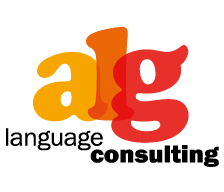In an increasingly globalized world, intercultural communication has become an essential skill in various fields, including translating.
Translating does not simply mean replacing the words of one language with the words of another; it involves conveying the meaning of a source text in the cultural context of the target language, taking account of the nuances of language, social customs and habits. We analyse the importance of intercultural communication in this article by ALG Language Consulting, a translation agency in Turin.
Why is intercultural communication important in translation?
Intercultural communication plays a crucial role for a translator: it is not enough to translate a text literally to make it understandable in another culture, it has to be adapted to the customs and traditions of the target country, with its cultural codes, values, symbols and references. A culturally competent translator is able to correctly render the author’s message in the target language.
In-depth analysis of the text and its semantic and syntactic components is followed by reformulation and adaptation to the social and cultural context of the target country.
The translator has to restructure the language, style and content of the text to adapt it to the recipient. A slang expression or an idiom, for example, if translated literally may not have the same meaning or may even be incomprehensible in another country. A culturally sensitive translator is able to identify potential problems in terms of meaning, and find appropriate solutions.
Careful accurate translation can make texts that are difficult to interpret accessible and meaningful.
The role of a translation agency in cultural communication
In addition to high level linguistic and translating skills, a specialist translation agency also offers in-depth knowledge of intercultural communication.
This means that agency translators not only have an excellent command of the source and target languages, but are also able to:
- Understand cultural nuances: every language is closely linked to the culture of the people who speak it. To correctly convey the message of a text, it is essential to grasp the cultural nuances, the historic and social references, and the values and beliefs that permeate it.
- Adapt the text to the target culture: to guarantee effective communication between different cultures, the translator must take account of the habits, ways of thinking and expectations of the target audience.
- Avoid misunderstandings and ambiguities: cultural differences can easily lead to uncertainty if not carefully managed. An expert translator is able to identify potential problems in terms of meaning, and find appropriate linguistic solutions to avoid ambiguity.
- Promote intercultural dialogue: a good translation can facilitate dialogue and understanding between different cultures, helping to improve communication between people from different countries, strengthen relations and break down prejudices.
Intercultural communication is a fundamental component in the translation of texts: a culturally competent translator is able to provide translations that are meaningful and respect cultural diversity. If you are a translator or aspire to be a translator, investing in intercultural training is a fundamental step for improving your skills and being successful in this field.



